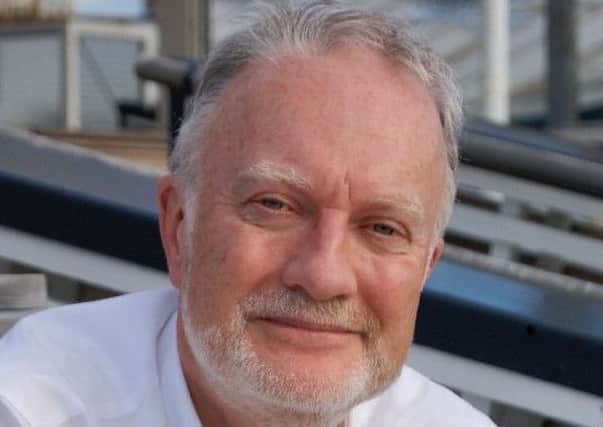Are you your own worst enemy? Think about it


I use these words at the start of most training events I undertake, with a whole variety of groups. It gets us all thinking about what we have control over and how easy it is to project blame on to others for those things for which we are in fact responsible.
The author is William Ury, the globally recognised academic and practitioner in mediation and negotiation, who most recently was centrally involved in negotiations to end the long-running war between the Colombian government and FARC guerrillas. The words come from his book, Getting to Yes with Yourself, a sequel to the multi-million selling and seminal Getting to Yes. Everyone who negotiates should read these books.
Advertisement
Hide AdAdvertisement
Hide AdIn May we have the real privilege of welcoming Ury back to Edinburgh. He first came here at my invitation in 2009 and held us captivated for a day in The Hub. He then joined us by video link for Collaborative Scotland’s Day of Dialogue two weeks before the independence referendum in September 2014.
His Master Class on 14 May, again at The Hub, is a must-go-to for those interested in how to negotiate well. At this time of political uncertainty, Ury’s concepts of BATNAS and WANTAS (Best/Worst Alternative To a Negotiated Agreement) have entered mainstream political discourse. What is the UK’s best alternative to a negotiated deal with the EU? And its worst? Where does such an analysis leave us?
There is so much more, including the need for legitimate and objective support for positions taken and assertions made: “We’ll be better off if…” Will we? Please show us the evidence to help us to decide. There is also the critical value of good relationships: even if you don’t like your opposite number, you need to find a way to work with him or her if you want to make progress. And focusing on interests: “What do we really need to achieve out of this? What is it really about?”
Ury is coming to address the International Academy of Mediators, which is holding its annual international conference in Edinburgh. This is a coup for Edinburgh and for mediation in Scotland. We will welcome 150 top mediators from North America, Australasia, Russia, Africa, and many parts of Europe. We have a varied programme of speakers, workshops and social events. There will be opportunities for local practitioners to mix with our guests in special pre-conference workshops. We shouldn’t miss the special, open to all, pre-conference lecture by Professor Hal Abramson on Nelson Mandela as Negotiator. This is based on an award-winning article. Details are on Core’s website.
The conference theme is Looking Outward – Mediation: A New Enlightenment? Sceptics may mutter but there is a real sense in this international community that mediation and the ideas which underlie it has so much more to offer.
Many countries which will be represented in May have experienced extensive, well-established and mature use of mediation. This is an opportunity for Scotland to look outward and learn, as well as to contribute.
A recent session of the Justice Committee in the Scottish Parliament examined Alternative Dispute Resolution, of which mediation is, after direct negotiation, the most established form when a third party is not pronouncing a decision, and where people are encouraged and enabled to reach their own solutions. That sense of autonomy and return of power to the people who are actually affected by a dispute seems enlightened – and worthy of encouragement and support by policy-makers, administrators, courts and practitioners.
William Ury would approve. As he says: “Our choices make all the difference.”
John Sturrock is founder, CEO and Senior Mediator, Core Solutions: www.core-solutions.com